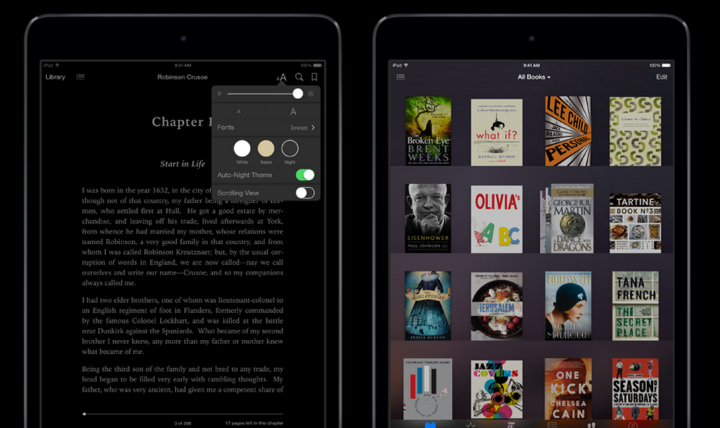
It’s the latest development in a long-running case that spans years. The Justice Department and 33 states first filed a lawsuit against Apple in 2012, accusing the company of conspiring with big-name publishers Hachette, Simon & Schuster, HarperCollins, Penguin, and Macmillian to supplant the ebook market’s then wholesale model with an agency model. Under the terms of a secretive arrangement, publishers reserved the right to dictate the price of ebooks on Apple’s iBooks store and elsewhere. In return, the iPhone maker received a bigger cut of sales.
“Apple did not conspire to fix ebook pricing and we know we did nothing wrong.”
The goal was to gain leverage against Amazon, which had grown to command 80 to 90 percent of all ebook sales in 2010, thanks a strategy of aggressively undercutting wholesale pricing. Under the agency model, ebook prices quickly rose, in some cases by nearly 20 percent.
In 2013, U.S. District Judge Dennis Cote found Apple guilt of being “conscious[ly] committed to … engage in [the] illegal behavior” of fixing ebook prices. That decision was reaffirmed in a 2-1 federal appeals court ruling earlier this summer. Second Circuit Court Judge Debra Ann Livingston, writing for the majority, held that “the district court correctly decided that Apple orchestrated a conspiracy among the publishers to raise ebook prices.”
In the filing Wednesday, Apple argues that a decision against it would have grave implications for the creative economy. “Dynamic, disruptive entry into new or stagnant markets — the lifeblood of American economic growth — often requires the very type of” behavior that Apple engaged in, the company argues.
“We are disappointed the Court does not recognize the innovation and choice the iBooks Store brought for customers,” said an Apple spokesperson after the company’s appellate loss. “While we want to put this behind us, the case is about principles and values.”
Should the Supreme Court decline to hear the case, Apple’s expected to pay $450 million — most of it to customers of its iBooks store — to resolve antitrust liabilities with the Justice Department and other plaintiffs. That’s pocket change to a company of Apple’s size — around 3 percent of its 2014 fourth quarter revenue, to be exact — but the iPhone maker seems more concerned with the principle of the thing. “Apple did not conspire to fix ebook pricing … and we know we did nothing wrong,” the company said in a statement earlier this year.
Editors' Recommendations
- Apple’s $30M settlement over worker bag checks OK’d by court
- Epic Games is suing Apple over Fortnite, App Store policies
- Apple reportedly names over-ear headphones AirPods Studio, with $349 price tag
- Apple fails to get lawsuit over its troublesome butterfly keyboard dismissed
- Apple might have to open iPhone to other app stores — here’s what that means


